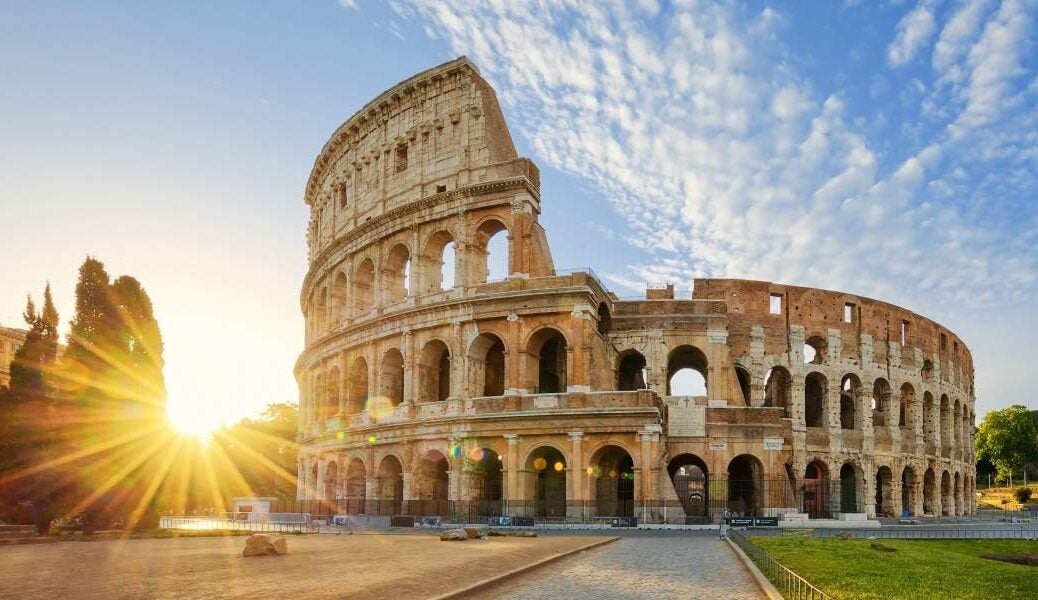
Even in the bustling Eternal City, you can find happy ports of peace, writes Christopher Jackson
Rome is such a powerful noun that a journey there is always a measure of the self. We arrived at night, our rented Volvo a tank-like rebuttal to numerous near-death experiences. And it led us towards a great reward: the Villa Spalletti Trivelli, perched on a distinguished site next to the Palazzo del Quirinale (the land was once owned by Cicero’s great friend, Titus Pomponius Atticus).
One calls this a ‘hotel’ with a degree of uncertainty: it is really an aristocratic residence where we were mysteriously allowed to sleep. The picture in the lounge that looks like a Rubens turns out to be a Rubens; the same for the Van Dyck. The tapestries have their counterparts in the Met in New York.
Outside, the only way to ruin Rome for yourself is to try to do it all. Even in the curious time when my wife and I had just met, an attempt to do the Forum and the Vatican in a day was a stretch. Now, with a toddler in tow, it’s laughably difficult even to leave the hotel. All history is here, and that’s stressful if you want to know all history. Instead, I recommend an aimless wander: Rome will reveal itself in its own time.
On our first afternoon, we selected the Villa Farnesina, which contains a ceiling painted by Raphael, as well as his famous Galatea. It’s the only ceiling in the city to rival Michelangelo’s. But here one swaps the jostle of the Vatican and perpetual neck ache for
an airy and light-filled villa.
Back across the Tiber, the Pantheon stands with absolute authority, the roof inside radiating its alien intelligence: it’s easy to forget, because so much of our civilisation flows from it, how other ancient Rome would seem to us if deposited there.
There is a tiredness in the legs which can feel very specific to Rome: it has to do not only with the hugeness of the city, but also with being weary of amazement. The Hotel de Russie – the second place we stayed – is perfectly situated just off the Piazza del Popolo, not far from the Spanish Steps. There, just under the house where Keats died, a group of American students accosted us to apologise profusely for Donald Trump and all his works.
Perhaps the greatest draw of the Hotel de Russie is the garden, stretching up in sculpted tiers like an amphitheatre: to breakfast here is to be on stage. The green also spills inside – right down to the Arcadian decor, and the hotel’s gift to my son, a charismatic toy frog. Celebrities also value its privacy. I was taken to the top floor suite where the Ocean’s Twelve crew stayed and was shown, as if the experience couldn’t wound me, a panoramic balcony with greater square footage than all the houses I will ever own.
Outside, Rome keeps vaunting its ghosts. Trajan’s forum tells you of an ancient market bustle which the Visigoths should never have been permitted to curtail. The baroque churches, the work of architects I haven’t time to study, rear up every 50 yards with their dated interest in theology. And the Vittorio Emanuele monument, given its proximity to so much genuine greatness, has a decent argument for being the most absurd building in the world: it simply has to be tolerated.
Rome. Yes, it’s a large noun. It always defeats you. But this time I found myself remembering the hotels: a lounge where the Rubens is real; and breakfast in a garden of infinitely climbing green. Well, it is the Eternal City after all.

Christopher Jackson is deputy editor of Spear’s






